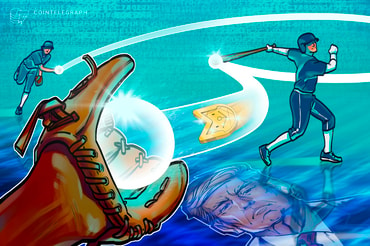U.S. Treasury Isn’t Trying to Ban Crypto Mixers, Top Official Says

AUSTIN, Texas – The U.S. Department of the Treasury is not attempting to ban cryptocurrency mixing services, a top official said Wednesday.
Speaking at CoinDesk’s annual Consensus conference in Austin, Brian Nelson – the Treasury’s Under Secretary for Terrorism and Financial Intelligence – addressed the Financial Crimes Enforcement Network’s (FinCEN’s) 2023 proposal to classify mixers as a “primary money laundering concern” and require virtual asset service providers (VASPs) to report any crypto transactions that involved mixing to the agency.
FinCEN’s proposal – along with an increasing number of enforcement actions by the U.S. Department of Justice against mixing services including Tornado Cash and Samourai Wallet – have been seen by many in the industry as evidence of a coming attempt to ban crypto mixing in the U.S. entirely, which the Treasury is firmly denying.
“At the end of the day, this [proposal] is not a ban on mixers,” Nelson said. “This is a proposed rule designed to drive transparency.”
Nelson said he’s sympathetic to crypto users’ desires for financial privacy, but suggested that the industry and Treasury should work together to find ways to enhance privacy without enabling terrorist financing.
“From our perspective, we believe that there is a difference between obfuscation and anonymity enhancing services that support privacy – we of course totally recognize that, in the context of public blockchains…that there would be a desire to have a certain degree of privacy,” Nelson said. “In that spirit, we want to work closely with industry to identify and collaborate on tools that can enhance privacy.”
Nelson said that the majority of mixers he’s seeing are not actually created to enhance privacy, but are made to skirt anti-money laundering (AML) and know-your-customer (KYC) reporting requirements, thus making them “very attractive” to bad actors, including North Korea.
“It’s not that everybody needs to know who you’re transacting with,” Nelson said – just that people and VASPs alike need to know they’re not “unwittingly” funding Hamas or North Korea’s weapons program.
Edited by Nikhilesh De.
Disclosure
Please note that our privacy policy, terms of use, cookies, and do not sell my personal information has been updated.CoinDesk is an award-winning media outlet that covers the cryptocurrency industry. Its journalists abide by a strict set of editorial policies. In November 2023, CoinDesk was acquired by the Bullish group, owner of Bullish, a regulated, digital assets exchange. The Bullish group is majority-owned by Block.one; both companies have interests in a variety of blockchain and digital asset businesses and significant holdings of digital assets, including bitcoin. CoinDesk operates as an independent subsidiary with an editorial committee to protect journalistic independence. CoinDesk employees, including journalists, may receive options in the Bullish group as part of their compensation.
Cheyenne Ligon is a CoinDesk news reporter with a focus on crypto regulation and policy. She has no significant crypto holdings.
Learn more about Consensus 2024, CoinDesk’s longest-running and most influential event that brings together all sides of crypto, blockchain and Web3. Head to consensus.coindesk.com to register and buy your pass now.

Published on Other News Site












